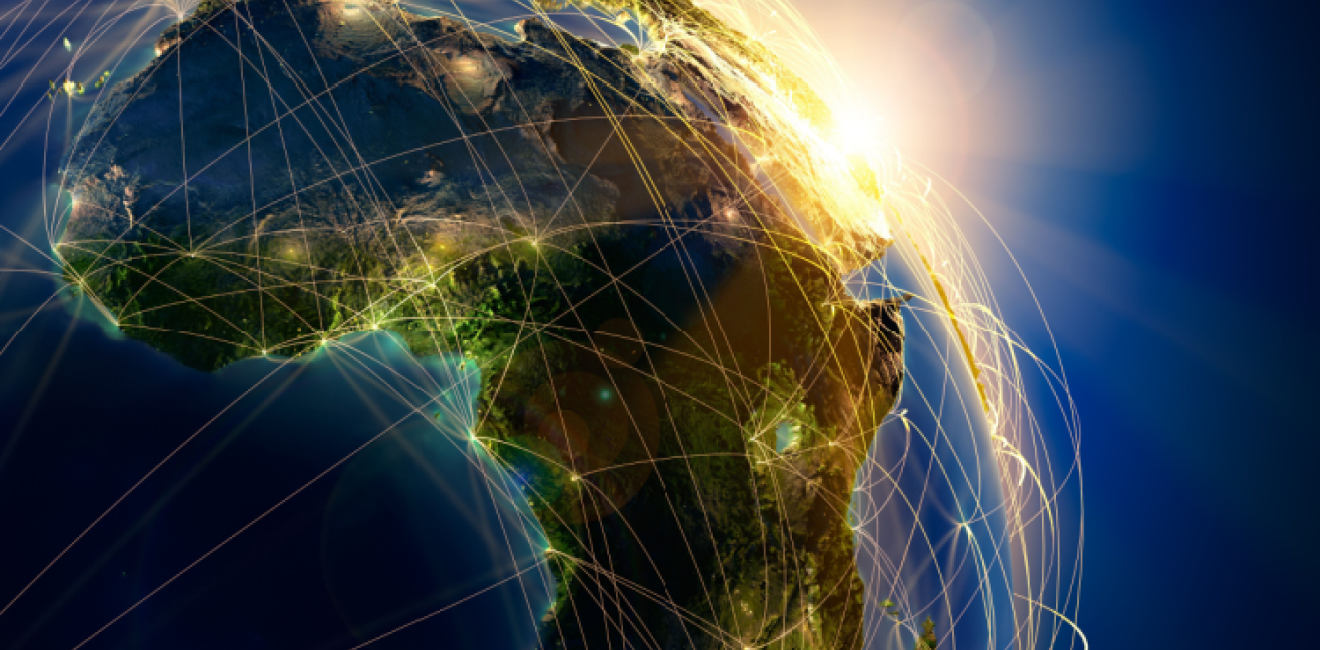
A blog of the Africa Program
The days when Washington and its allies could look on Africa with casual disregard are over. Africa is transforming rapidly with its launched continental free trade agreement, increased demand for its mineral riches, and an enviable position as a center of a superpower competition for global influence.
The African Continental Free Trade Area (AfCFTA), which came into force in 2019, has 54 diverse signatories. It is a market of 1.3 billion people with a combined gross domestic product of approximately $3.4 trillion. However, a great deal of market potential remains untapped. Today, only 14.4% of the continent’s total trade is within Africa, whereas European Union trade is 60% within the EU, and Asian trade is 40% with other Asian countries. Fewer trade barriers among African countries could lift 30 million people from poverty and boost continental GDP by $450 billion (or 7%) from 2023 by 2035, according to the World Bank and African Development Bank.
Donald Trump’s demeaning comments about Africa still rankle African leaders, and European countries relations with their former African colonies have deteriorated badly. Over the last two decades, China has steadily taken advantage of this discord and grown to become Africa’s largest trading partner, investor, and lender. Underpinned by the Belt and Road Initiative launched by President Xi Jinping in 2013, China now dominates infrastructure projects across the continent, capturing 31% of African infrastructure projects valued at $50 million or more, compared with 12% for Western companies. In comparison, US and European companies won 85% of African construction contracts in 1990. Bilateral China-Africa trade grew to $250 billion in 2021; at $62 billion, US trade with Africa is but a fraction.
According to McKinsey & Company, more than 10,000 Chinese companies operate in Africa today. These companies have invested $300 billion in the continent, employ millions of Africans, and have conducted more than $2 trillion in business since 2005.
Whether the United States can secure a stable supply of these critical mineral will depend on the types of trading relationships Washington negotiates with African partners. Here, many questions remain.
Europe and the United States are awakening to the fact that they are being overtaken. At the May 2023 G7 Summit in Hiroshima, the Group and its partners agreed to scale up a 2022 Partnership for Global Infrastructure and Investment, through which leaders pledged up to $600 billion investment in Africa over five years. The package would support railroad projects in Zambia, the Democratic Republic of the Congo, and Angola; data centers in Ghana; and telecoms providers in Sierra Leone and Gambia.
The timing is fortuitous. Chinese lending to Africa is slowing, and there is growing resentment in some countries that partnership with China is one-sided.
A 2013 railroad project in Kenya has been mired in controversy from the outset, with critics saying the bidding process was flawed. A traffic management system contract in Ghana wound up in the court of arbitration in The Hague. Both projects have hurt China in Africa’s court of public opinion. Africans also complain that Chinese companies and workers rather than local Africans benefit from China’s projects on the continent. According to the McKinsey survey, Chinese companies relied on local partners for only 47% of their human resourcing needs by value, and only 44% of project managers were African. The survey further indicated instances of labor and environmental violations by Chinese-owned businesses.
Crushing debt obligations also burden many African nations. China is by far the biggest source of loans for Kenya, Zambia, and Ethiopia. Beijing’s reluctance to grant debt relief and insistence on extending new loans rather than restructuring debt has won few friends in Africa.
Much of China’s lending to Africa is linked to extraction projects for critical raw materials like lithium, cobalt, manganese, graphite, and rare earth elements—including scandium, cerium, and yttrium. These materials are essential in producing solar energy, wind turbines, and electric vehicle motors. The success of sweeping sustainable energy programs, like the Inflation Reduction Act in the United States and the Clean Energy Package in the European Union, depends on accessing such materials, making global competition to obtain them is white hot.
Whether the United States can secure a stable supply of these critical mineral will depend on the types of trading relationships Washington negotiates with African partners. Here, many questions remain.
Since the dawn of the 21st century, the African Growth and Opportunity Act (AGOA) has been the cornerstone of US economic interaction with Africa. In 2021, the United States imported $44.8 billion in goods from Africa, of which $6.7 billion entered the country under AGOA trade preferences. Low utilization have limited AGOA’s benefits for Africa, but the US International Trade Commission claims the program has reduced poverty and created jobs, if only in some countries and sectors.
With the agreement set to expire in 2025, the Biden administration has an opportunity to improve AGOA, better tailor it to the reality of the AfCFTA, and augment utilization rates. The United States should not let this chance slip away.
The Biden Administration talks a good game about using trade to tackle poverty. This is an opportunity to see if it is as good as its word. Failure to bolster US trade and political relations with Africa would only further surrender influence to China for the foreseeable future.
Keith Rockwell is a Global Fellow at the Wilson Center and Senior Research Fellow at the Hinrich Foundation. This article was adapted from one written earlier for the Hinrich Foundation.
The opinions expressed on this blog are solely those of the authors. They do not reflect the views of the Wilson Center or those of Carnegie Corporation of New York. The Wilson Center's Africa Program provides a safe space for various perspectives to be shared and discussed on critical issues of importance to both Africa and the United States.
Author

Director of the Information and External Relations Division and Chief Spokesman at the World Trade Organization (retired)

Africa Program
The Africa Program works to address the most critical issues facing Africa and US-Africa relations, build mutually beneficial US-Africa relations, and enhance knowledge and understanding about Africa in the United States. The Program achieves its mission through in-depth research and analyses, public discussion, working groups, and briefings that bring together policymakers, practitioners, and subject matter experts to analyze and offer practical options for tackling key challenges in Africa and in US-Africa relations. Read more


Wahba Institute for Strategic Competition
The Wahba Institute for Strategic Competition works to shape conversations and inspire meaningful action to strengthen technology, trade, infrastructure, and energy as part of American economic and global leadership that benefits the nation and the world. Read more

Explore More in Africa Up Close
Browse Africa Up Close
The Innovative Landscape of African Sovereign Wealth Funds



